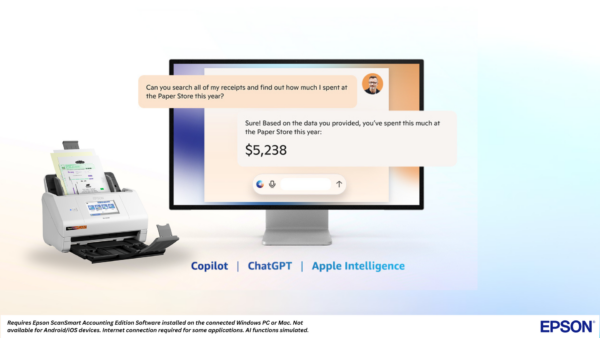A rapidly evolving technology requires internal and external safeguards by organizations using it.
One of the most quotable speakers at the 2024 Executive Connection Summit was Joseph Brunsman of the Brunsman Advisory Group. While some panelists argued that AI will not impact employment, Brunsman offered a contrary view. “Implementing AI is going to shrink jobs,” he predicted. “With that, you’re going to see legislation that can fundamentally change how you are using AI in your business and what the future possibilities are.”
Brunsman emphasized the importance of keeping track of the regulatory and statutory side because that will quickly have large material impacts on businesses. “If you’re not keeping up with that, oh my God, are you going to be sued into oblivion,” he said. “An AI-in-the-workplace policy will be a legal document within your business.”
In a recent interview with The Cannata Report about existing and pending legislation around the use of AI, he noted that the problem is the people responsible for the legislation aren’t all that savvy about technology, even the intellectual heavyweights, and that they are way too busy to take the time to learn.
“They’re so busy, and this is so far out of their expertise, I would argue on both sides of the aisle, but their concerns are about what are the potential impacts on, let’s say, jobs for their constituents,” observed Brunsman. “They’re trying to do the best they can with the wheels that spin very slowly in D.C. They’re trying to figure out the prospective bad things that could happen, and how do we at least begin to attack that problem? Some of the legislature deals with hiring, firing, and promotion where they’re saying, ‘You can’t use AI to do that.’”
Brunsman believes legislators are trying to get a handle on AI, but it’s a challenging task. “I’m sure they have the smartest brains briefing Congress, and they’re probably saying, ‘You guys have no idea what’s about to happen.’”
It’s not just a problem with legislators in Washington. There are also people on the AI development side who are challenged by the technology. “I would argue many of the people in the AI-specific field who are doing this research, writing those programs, and refining that code, don’t understand how it really works,” said Brunsman.
Creating an AI Policy
In corporate America, SMBs, and even dealerships, a serious consideration amongst all the unknowns around AI is the need to create an AI policy. “Businesses absolutely need to start homing in on this because once again, you have people who made this thing that don’t really know how it works, being used by people who absolutely have no idea how it works,” said Brunsman.
“It is essential that a dealer utilizing artificial intelligence in its business implement internal and external artificial intelligence policies,” added BTA’s General Legal Counsel Bob Goldberg. “If using AI in conjunction with employee recruitment, this fact must be disclosed. Care must be taken to ensure AI is not biased in evaluating applicants. If AI is used in conjunction with a dealer’s website, this must also be disclosed. Evaluate where AI is being implemented and create proper policies and disclosures to safeguard its use.”
The reason for creating an AI policy is to prevent employees from misusing the technology, something that’s already happening. “You have employees just doing wacky stuff, putting information into things, and if you start reading the terms of service for many of these AI companies, they go, ‘You put something in, we’re going to be using that data moving forward,’” said Brunsman.
“You have to be careful because how do people generally view technology—input, magic box, wonderful output, done,” he added. “But it’s not that simple. Like any professional, I would argue the quality of the answer fundamentally depends on the quality of the question. You have to ask the right question to get the right output.”
One issue surrounding the use of AI in businesses is how confidential information is handled, a critical component of an AI policy. “Anytime you have an employee inputting confidential client information [into AI], that’s bad,” added Brunsman. “That’s going to get you.”
Consider AI Tools When Developing an AI Policy
Obviously, creating an AI policy isn’t simple because there are so many variables to consider. As Brunsman noted, “What AI programs can you use and what can you use it for? How do you vet it as a business? Who can and can’t use it?”
Increasingly, he said, organizations must audit those AI tools and identify what the business is using them for and their validity. “There’s a lot of legislation and pending laws on what AI can be used for, what you can’t use it for, and if you can trademark or copyright something,” said Brunsman. “If it’s majority human, minority AI, can you still impart those legal protections?”
He offers an example. “Imagine you are designing your next marketing campaign, and you have AI create 50 different options. You find one that everybody likes, you tweak it a little bit and you send it out. Can you even own that material? Or are you setting yourself up for utter disaster when somebody says, ‘That looks like a derivative of my work as an artist. Therefore, I’m going to sue you and the AI company.'”
Brunsman recommends mandatory employee training as part of an AI policy. “You have to do employee training to combine all this into one with some mechanism to report non-compliance, so you’re responsible to a court. Who’s going to administer the policy? Who’s covered by the policy? Those are the big-ticket items.”
Beware of Chatbots
He’s also cautious to the point of being contrary when clients ask if they should include a chatbot on their websites. “My first answer is absolutely not,” he said. “Here’s why: Are you liable for what that AI bot says to that client? You are. Be very measured and very calculated when you use this technology.”
Aside from all those concerns, once the AI policy is created, it must be constantly reviewed because AI technology and how it is used is changing so fast, along with laws about how it is being used. “Hopefully, these businesses have attorneys that do this,” concluded Brunsman.





